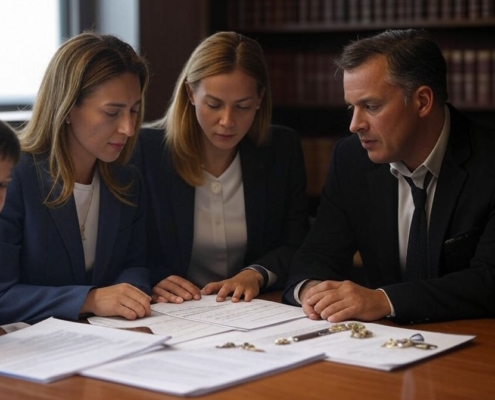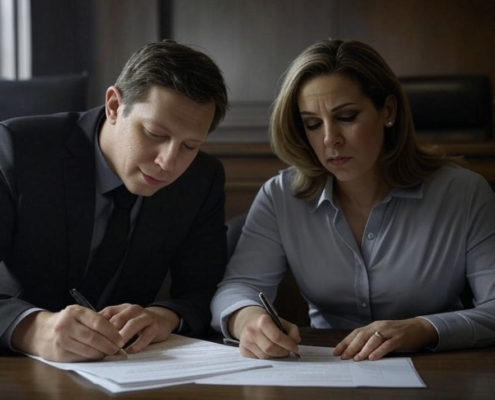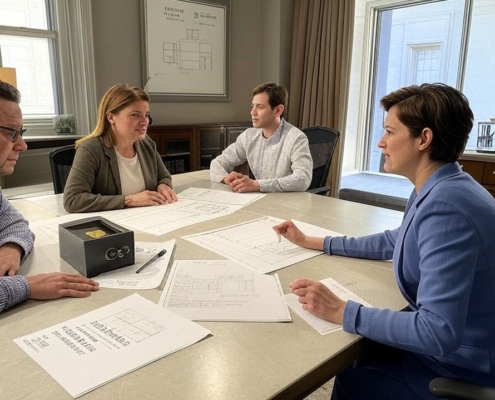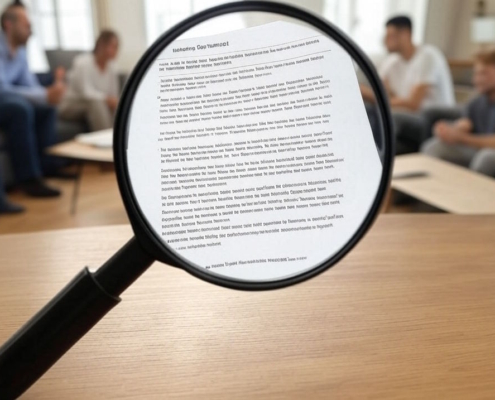What does an estate attorney do for beneficiaries?
Making a plan for the distribution of your assets and management of your business in the case of your death or incapacity is what’s known as estate planning. Still, it’s normal to feel overwhelmed when you really begin. Attorneys specializing in estate planning can help with this. For your peace of mind, these experts will walk you through the process step by step. Many individuals have no idea who needs an estate planning attorney, what they do, or even what an estate attorney is.
What follows is an explanation of the role and significance of an estate planning attorney. Thanks to estate planning attorney Brian Zimmet, we will also provide you pointers on how to be ready for your first appointment with an attorney. To begin, though, it is necessary to define what an estate planning attorney is.
What exactly does an estate planner do?
Professionals in the field of end-of-life planning are known as estate planners or estate planning attorneys. Professionals in this field may advise you on all aspects of estate planning, including the laws governing the distribution, taxation, and transfer of your assets.
What are the duties of estate attorneys?
Professionals in the field of estate planning collaborate with clients, who may also consult with tax experts and financial planners, to develop a unique strategy for the distribution of assets. Some of the things that an estate planning attorney can help you with are:
- Making legal arrangements for one’s estate, such as a will
- Choosing who your beneficiaries are
- The process of creating a POA, whether temporary or permanent,
- Making long-term care plans and advanced healthcare directives
- Assisting you in identifying the most appropriate trust structure
- Creating a trust to safeguard and distribute assets both during and after your passing
- Collaborating with your financial planner to lessen the financial impact of estate taxes
- Finding methods to sidestep the probate procedure
Can I get by without an estate lawyer?
If you need help navigating the maze of estate planning laws, a lawyer can be a lifesaver.
To avoid emotional distress, confusion, and litigation after your death, consult with an attorney who specializes in estate planning to create a thorough, legally enforceable plan. Consulting an estate planning attorney also has other advantages, such as:
- An approach tailored to your specific requirements
- Legal counsel from an expert who understands your case
- Help in understanding the rules that govern your will and estate
- Peace of mind knowing that your estate planning choices comply with all applicable local, state, and federal regulations
- Advice for those who will be responsible for your affairs after your death or incapacitation, including your executor, fiduciary, and power of attorney
Do only wealthy people engage in estate planning?
Wills and estate plans aren’t just for the well-off. Actually, everyone with possessions and a desire for a specific distribution of those possessions after death can benefit from estate planning. It’s a must-have for anyone taking care of young children, elderly parents, or loved ones with special needs.
What should I do in order to be ready to meet with an estate planning lawyer?
Though it may seem daunting at first, getting ready for your initial estate planning appointment is really rather simple. With the help of an expert, think about the four things you need to do to get ready for estate planning.
Step 1: Pick an attorney who specializes in estate planning
One of the most challenging and crucial parts of estate planning is finding a good lawyer to represent your interests. Hire a lawyer or law company that specializes in estate planning, federal and state tax preparation, and trust administration. There may be omissions or gaps in your estate plan if you do not.
If you need references, just ask around. Also, check with your company to see if they have a legal plan benefit; if so, you may be able to pay a small monthly charge to have access to a group of skilled estate planning lawyers.
Step 2: Get things in order
To paint an accurate representation of your assets, compile all relevant paperwork.
- Statements from bank accounts
- Account documents for investments and brokerages
- Records pertaining to pensions and retirement accounts
- Life insurance plans
- Titles to properties and timeshares
- Titles for vehicles and boats
- Designations of beneficiaries
- Appointments for guardianship
- Legal decrees pertaining to a divorce, a prenuptial or postnuptial agreement, or a palimony agreement
- Records of adoption and birth
- Official records of company ownership and partnership interests
- Copyright, trademark, intellectual property, and patent paperwork
- Loan documents
- Mortgage(s)
- Credit card statement
It may take some time to gather all of this paperwork, but your attorney may make a significant discovery as a result. “Imagine you have a beautiful estate, but you later learn that you only have a partial ownership stake in an item, or that you don’t actually own any of it at all,” Zimmet says. “For estate planning reasons, you may need to revoke a prenuptial agreement or sign a divorce order that was never executed.”
As you deal with an estate planning attorney, they will take into account the specifics of your case. A personalized estate plan that safeguards your assets and provides for your loved ones may take some extra time and energy to compile and organize, but it will be well worth it in the end.
Advice: If at all feasible, make digital copies of all documents. So that you always have a backup, scan physical copies and upload digital information to the cloud.
Step 3: Communicate your desires to your loved ones
It could be difficult to broach the subject of your own death with those you care about. There is a lot to talk about because it is a serious subject. But considering these challenging situations is where your estate strategy begins.
The good news is that you can break it up into smaller tasks. Subdividing the topic into more manageable chunks can help, such as asking: Who will manage your money? Who will watch after your kids? Which individual will be your executor and carry out your wishes? If you become incapacitated, who will make the important healthcare decisions?
Whatever method you choose to share your intentions, know that you are not alone; in fact, there are many people doing the same thing.
Step 4: Get Your Questions Ready
You have sorted your documents and communicated with those who are close to you. The last thing to do is to prepare questions to ask your estate lawyer.
Here are the six that Zimmet recommends:
- What things should be in my will and testament?
- Tell me how my desired estate plan would affect my taxes and what steps I can take to reduce hem.
- How can you make sure my wishes are properly executed?
- On average, how many steps does it take to finalize an estate plan?
- What is the best place to keep my documents?
- How will you keep my estate plan up-to-date, and will you check in on it at regular intervals?
According to Zimmet, a good estate planning attorney will put you at ease, answer all of your questions in a way that you can comprehend (rather than using legalese that you won’t be able to translate), and welcome your questions. Consider seeking out a different lawyer if you feel otherwise.
Have your questions about end-of-life care answered by professionals. An estate planning attorney is a great resource whether you are starting from scratch or would like to make changes to an existing plan. Seek advice from people you know and trust, such as friends and coworkers. On the other hand, you can check with your company about any legal plan benefits they may have.
These benefits might put you in touch with a group of skilled attorneys who can assist you with estate planning and other legal matters. By doing so, you will get a reliable lifelong counsel and alleviate some of the financial burden associated with end-of-life preparation.






























